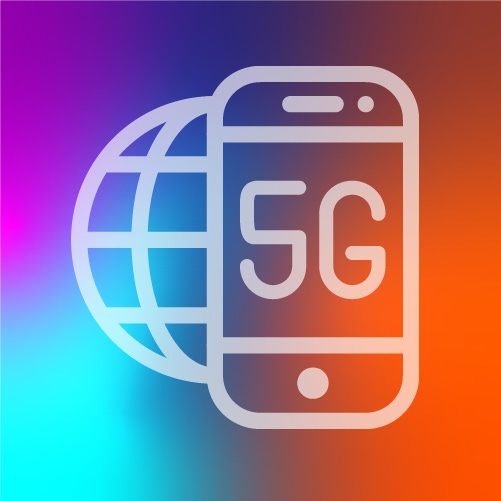
Research and consulting firm Signals Research Group published what are likely the first publicly available tests of Dish Network's 5G network in Las Vegas. The results are somewhat mixed.
"They have some work to do to catch up," summed Emil Olbrich, VP of networks with Signals Research Group (SRG), in comments to Light Reading. He said Dish's 5G network in Vegas isn't as good as T-Mobile's 5G network in the city, but he said it's still early days for Dish and the company likely will improve its offering.
Olbrich said that SRG's early tests indicate that Dish operates more than 100 cell towers in Las Vegas. However, he said the firm's initial findings indicate Dish likely isn't providing the blazing-fast speeds that other 5G providers are.
"They're going to have some issues," Olbrich said of Dish's efforts to refine its network in Vegas.
What happens in Vegas
In its report, SRG analysts spent 24 hours in Vegas last week using professional wireless network testing equipment from Rohde & Schwarz to test the wireless networks there.
Figure 1:  SRG's early drive tests of Las Vegas help show some of Dish's 5G coverage in the city.
SRG's early drive tests of Las Vegas help show some of Dish's 5G coverage in the city.
Click here for a larger version of this image.
(Source: Signals Research Group)
SRG's Olbrich said the firm picked up Dish's 5G transmissions in band 71 (600MHz), band 66 (AWS) and band 70 (AWS-4), which are the spectrum bands Dish is using for its initial 5G buildout. He said the firm recorded 284 unique cell site IDs in band 71 for Dish, and fewer for the company's other two spectrum bands.
Olbrich explained that most cell towers have either two or three sectors, or unique cell site IDs. Thus, he said he's relatively certain that Dish is operating at least 100 cell towers in the city of Las Vegas.
However, he said that Dish is not employing much spectrum in its 5G network in the city. He said SRG's findings showed that Dish is employing 5MHz in band 66, 10MHz in band 71, and 25MHz in band 70. "Their bandwidths are relatively small," he explained.
There are a number of factors that determine the performance capabilities of a wireless network. One is the type of spectrum used – for example, due to the propagation characteristics of 5G in Dish's 600MHz lowband spectrum, signals in that band can often travel for several miles.
However, another factor is the amount of spectrum employed. The more spectrum an operator uses, the faster the speeds they can provide. For example, T-Mobile has already deployed 100MHz of spectrum in the 2.5GHz band across large portions of the country; as a result, the operator is boasting of speeds around 300 Mbit/s.
Dish, on the other hand, is only deploying a total of around 40MHz of spectrum in Las Vegas. Olbrich suggested that design won't be able to support very speedy 5G connections when compared with other 5G operators. He said SRG wasn't able to conduct actual speed tests on Dish's network because the firm wasn't able to obtain any actual phones that can access the network.
Dish officials have acknowledged the company's network will be a work in progress. "Certainly, speeds are important," Dish's Charlie Ergen said earlier this year. But he said that not everybody needs "a Lamborghini that goes 280 miles an hour ... I think as long as we make something that goes 100 miles an hour, we'll be in pretty good shape. So I think we'll look at consistency."
Known unknowns
Olbrich said SRG's early tests of Dish's network can only go so far. For example, he said the company couldn't determine Dish's 5G equipment suppliers, though he believes Japan's Fujitsu is supplying the radios atop Dish's 5G cell towers in Vegas.
He also said he could not tell whether Mavenir or Rakuten's Altiostar is providing Dish's network management software in the city. He said that's an important function because Dish will need to mitigate interference between its cell towers in order to provide speedy, reliable connections.
He also said Dish's coverage is relatively comprehensive on the East side of Las Vegas but not on the West side. Olbrich said that any comparisons between Dish's 600MHz network in the city and T-Mobile's 600MHz network in the city is "not necessarily a fair comparison" because T-Mobile has had years to improve its network in Vegas.
According to SDxCentral, Dish had been expected to offer a public demonstration of its 5G network in Las Vegas in conjunction with the AWS re:Invent trade show there last month. However, there was no public demonstration of the network.
Dish Network had hoped to turn on its Vegas network sometime this year, but that launch was delayed. During Dish's earnings call in early November, the company said it is offering a 5G beta service in Las Vegas with an unspecified number of employees and other "friendly" users.
Related posts:
— Mike Dano, Editorial Director, 5G & Mobile Strategies, Light Reading | @mikeddano
[Ed. note: The headline of this article was changed to better reflect the story's theme and the content of the networks tests performed.]
About the Author(s)
You May Also Like











